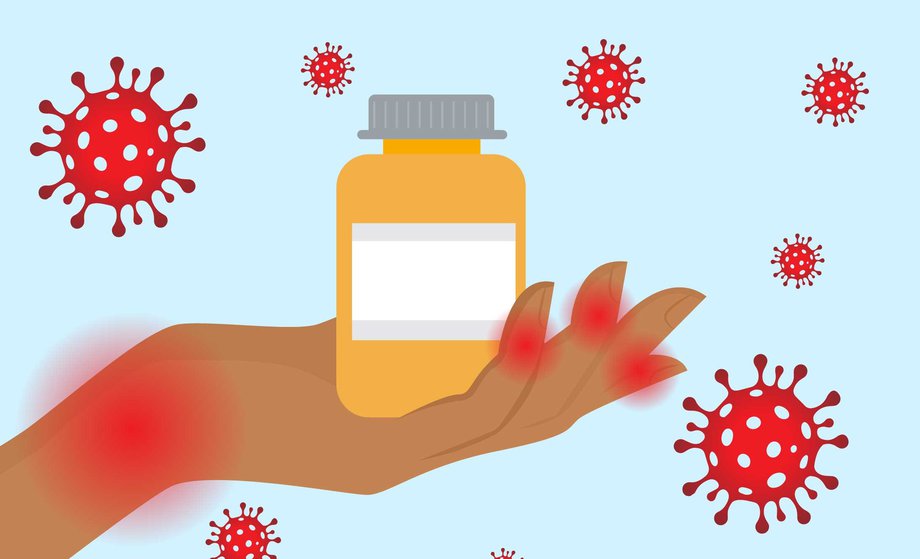What Is The Importance Of Antiviral Medications In Fighting Infections?

Antiviral medications play a crucial role in the management and prevention of viral infections. These medications are specifically designed to target and inhibit the replication of viruses, thereby reducing the severity and duration of infections.
Understanding the importance of antiviral medications is essential in the context of global health, as viral infections continue to pose significant challenges to public health systems worldwide. This article aims to explore the various types of antiviral medications available, their mechanisms of action, and their specific applications in the treatment of different viral infections such as influenza, herpes, HIV/AIDS, and hepatitis.
Additionally, the article will discuss the future prospects of antiviral medications, including emerging therapies and potential areas for further research.
By elucidating the significance of antiviral medications, this article seeks to contribute to the broader understanding and appreciation of these medications in the fight against viral infections.
Key Takeaways
- Antiviral medications increase CD4 cell count, improving immune function and overall health outcomes for individuals with HIV/AIDS.
- Suppressing viral load minimizes viral replication, prevents spread to healthy cells, reduces transmission risk, enhances immune response, slows down infection progression, and increases effectiveness of other interventions.
- Antiviral medications targeting specific viral enzymes or proteins suppress viral replication and reduce viral load, preventing spread and improving treatment outcomes.
- Antiviral medications are essential in the treatment of hepatitis, preventing transmission and reducing liver damage.
Various types of antiviral medications have been developed to target different stages of viral replication, such as entry inhibitors, nucleoside analogues, and protease inhibitors, resembling an army of specialized soldiers, each equipped to dismantle a specific step in the viral invasion process.
Entry inhibitors work by blocking the virus from entering human cells, preventing infection.
Nucleoside analogues, on the other hand, mimic the building blocks of DNA and RNA, inhibiting viral replication.
Protease inhibitors disrupt the enzyme necessary for the virus to assemble and release new viral particles.
While these medications are effective in fighting viral infections, they are not without side effects. Common side effects include nausea, headaches, and fatigue.
Additionally, antiviral medications may interact with other drugs, leading to potential drug interactions.
Therefore, it is crucial for healthcare professionals to carefully monitor patients receiving antiviral medications to manage any potential side effects and drug interactions.
In the fight against viral infections, antiviral medications play a crucial role by targeting the replication of viruses. One way they achieve this is by inhibiting the viral replication process, preventing the virus from multiplying and spreading throughout the body.
Additionally, antiviral medications can specifically target viral enzymes, which are essential for the replication of the virus, further hindering its ability to replicate and cause infection.
Furthermore, these medications can also help boost the immune response against the virus, allowing the body’s natural defenses to better combat the infection.
Inhibition of Viral Replication
The suppression of viral replication plays a pivotal role in the efficacy of antiviral medications against infections. Antiviral drugs act by inhibiting different stages of the viral replication cycle, preventing the virus from multiplying and spreading within the host.
By interfering with viral enzymes, proteins, or nucleic acids, these medications effectively disrupt the replication process. Inhibition of viral replication not only reduces the severity and duration of the infection but also limits the transmission of the virus to other individuals.
However, it is crucial to note that the development of drug resistance can undermine the effectiveness of antiviral medications. Viruses can mutate and acquire resistance to specific antiviral drugs, rendering them less effective or completely ineffective. Therefore, continuous research and development of new antiviral medications are necessary to combat emerging drug-resistant viral strains.
Targeting Specific Viral Enzymes
Targeting specific viral enzymes is crucial in disrupting the replication process and impeding the multiplication and spread of the virus within the host. By focusing on these key enzymes, antiviral medications can effectively inhibit viral replication and reduce the severity and duration of viral infections.
To achieve this, antiviral drugs are designed to target viral proteins that are essential for various stages of the viral life cycle. By interfering with the function of these specific viral enzymes, the replication process can be disrupted, preventing the virus from multiplying and spreading to other cells.
However, it is important to note that the development of antiviral drug resistance poses a significant challenge. Viruses can mutate and develop resistance to specific antiviral medications, rendering them less effective over time. Therefore, ongoing research and development are necessary to identify new targets and develop innovative antiviral strategies to combat drug-resistant viruses.
In summary, targeting specific viral enzymes is a critical approach in antiviral therapy as it disrupts viral replication. However, addressing the issue of antiviral drug resistance is also crucial to ensure the long-term effectiveness of antiviral medications.
Boosting Immune Response
Enhancing the body’s immune response is crucial in bolstering defenses against viral pathogens and promoting a more robust defense mechanism. When it comes to fighting infections, antiviral medications play a vital role in inhibiting viral replication and reducing the severity of symptoms. However, in addition to antiviral medications, boosting the immune system can provide an alternative approach to combating viral infections.
Various strategies can be employed to enhance the immune response, such as adopting a healthy lifestyle, getting regular exercise, maintaining a balanced diet, and reducing stress levels. Moreover, alternative treatments like herbal supplements and immune-boosting therapies are also being explored. These interventions aim to strengthen the immune system, allowing the body to better recognize and eliminate viral invaders.
While antiviral medications are effective in directly targeting specific viral enzymes, boosting the immune response can provide an additional layer of defense against viral pathogens.
Antiviral medications play a crucial role in the management of influenza infections. They are specifically designed to target the influenza virus and inhibit its replication within the body. These medications have been proven to be effective in reducing the severity and duration of influenza symptoms when taken within 48 hours of symptom onset.
The treatment effectiveness of antiviral medications is well-supported by scientific evidence, with studies demonstrating their ability to shorten the duration of illness by approximately one day. However, it is important to note that antiviral medications may have potential side effects, such as nausea, vomiting, and dizziness. These side effects are generally mild and transient, and they are outweighed by the benefits of early treatment in preventing complications and reducing the risk of hospitalization.
Therefore, the use of antiviral medications in the treatment of influenza is an essential strategy in managing and controlling the spread of this infectious disease.
Antiviral medications play a crucial role in the treatment of various infections, including herpes and cold sores. The previous subtopic discussed the use of antiviral medications in combating influenza. Now, we turn our attention to the application of these medications for herpes and cold sores.
Antiviral drugs, such as acyclovir, famciclovir, and valacyclovir, are commonly prescribed to manage herpes outbreaks and reduce the duration and severity of symptoms. These medications work by inhibiting the replication of the herpes virus, thereby minimizing the risk of transmission and preventing future outbreaks.
Additionally, antiviral medications are also employed in the treatment of other viral infections, such as shingles and respiratory infections. By targeting specific viral enzymes or proteins, these drugs hinder viral replication and alleviate symptoms associated with these conditions.
The effectiveness of antiviral medications in managing these infections highlights their significance in the field of medicine.
Combination therapy, also known as antiretroviral therapy (ART), is a crucial approach in the treatment of HIV/AIDS.
It involves the use of multiple antiviral medications to target different stages of the viral replication cycle, thereby minimizing the chances of drug resistance and maximizing treatment efficacy.
Suppressing viral load is a primary goal of antiviral medications for HIV/AIDS, as it helps to control the progression of the infection and reduce the risk of transmission.
Additionally, these medications have been shown to increase the CD4 cell count, which is indicative of improved immune function and can lead to better overall health outcomes for individuals living with HIV/AIDS.
Combination Therapy
An innovative approach to treating viral infections involves the use of multiple medications simultaneously, known as combination therapy. This method has gained significant recognition in the management of HIV/AIDS. Combination therapy aims to maximize the effectiveness of antiviral medications by targeting different stages of the viral replication cycle, reducing the viral load, and delaying the development of drug resistance.
By utilizing a combination of antiretroviral drugs, the likelihood of viral replication is significantly reduced, leading to improved clinical outcomes and increased survival rates. Additionally, combination therapy offers the advantage of reducing the risk of antiviral resistance, as the use of multiple drugs simultaneously makes it more challenging for the virus to mutate and develop resistance to all medications.
As a result, combination therapy has revolutionized the treatment of HIV/AIDS, providing patients with better control of the infection and enhancing their quality of life.
Suppressing Viral Load
Suppressing viral load is a crucial aspect of managing viral infections, as it helps to minimize viral replication and mitigate the development of drug resistance. By reducing the amount of virus in the body, antiviral medications can effectively control the progression of the infection and improve patient outcomes.
The importance of suppressing viral load in fighting infections is evident in the following ways:
- Preventing the spread of the virus to healthy cells.
- Minimizing the risk of transmission to others.
- Enhancing the body’s immune response by reducing viral burden.
- Slowing down the progression of the infection.
- Increasing the effectiveness of other therapeutic interventions.
Incorporating antiviral medications that target specific viral enzymes or proteins can lead to the suppression of viral replication and the subsequent reduction of viral load. This approach is crucial in preventing the virus from spreading, minimizing its impact on the body, and improving overall treatment outcomes.
Increasing CD4 Cell Count
Increasing the CD4 cell count plays a vital role in fortifying the body’s defense system against viral infections, akin to reinforcing the walls of a fortress to withstand an onslaught.
CD4 cells, also known as T-helper cells, are a critical component of the immune system responsible for coordinating the immune response.
Antiviral medications play a crucial role in increasing CD4 cell count by suppressing viral replication and reducing the overall viral load in the body. By reducing the viral load, antiviral medications help to preserve and restore the CD4 cell population, thereby increasing immune response.
Additionally, increasing CD4 cell count has significant implications in preventing viral transmission. A higher CD4 cell count results in a stronger immune system, making individuals less susceptible to acquiring and transmitting viral infections.
Therefore, the role of antiviral medications in increasing CD4 cell count is essential in both fortifying the body’s defense system and preventing the spread of viral infections.
Antiviral medications play a crucial role in the treatment of hepatitis infections. These medications are essential for preventing the progression of the disease and reducing the risk of liver damage. Here are four key points highlighting the importance of antiviral medications in the context of hepatitis:
- Hepatitis prevention: Antiviral medications are effective in preventing the transmission of hepatitis viruses, particularly in high-risk populations such as healthcare workers and individuals with multiple sexual partners.
- Reduction in liver damage: Antiviral medications can significantly reduce liver inflammation, preventing the development of chronic hepatitis and subsequent complications such as cirrhosis and liver cancer.
- Improved quality of life: By suppressing viral replication, antiviral medications help alleviate symptoms associated with hepatitis, such as fatigue, jaundice, and abdominal pain, leading to an improved quality of life for patients.
- Antiviral drug resistance: While antiviral medications are highly effective, the emergence of drug-resistant viral strains poses a challenge. Ongoing research aims to develop new antiviral agents and combination therapies to combat drug resistance and improve treatment outcomes.
In conclusion, antiviral medications are essential tools in the fight against hepatitis, preventing transmission, reducing liver damage, improving quality of life, and addressing drug resistance challenges.
One area of focus in the field of virology revolves around the development and optimization of novel therapeutic strategies to combat viral diseases such as hepatitis, ensuring better treatment outcomes and reduced drug resistance. The future of antiviral medications holds great promise, with ongoing research and development efforts aiming to improve their efficacy and safety profiles. These future developments include the use of combination antiviral therapy, which involves the simultaneous administration of multiple antiviral drugs to target different stages of the viral life cycle. This approach can enhance treatment effectiveness and reduce the likelihood of drug resistance. However, it is important to consider potential side effects that may arise from these advancements. Adverse events such as gastrointestinal disturbances, skin reactions, and hepatotoxicity have been reported with some antiviral medications. Therefore, continuous monitoring and optimization of these medications are crucial to ensure their long-term safety and effectiveness.
| Future Developments | Potential Side Effects |
|---|---|
| Combination antiviral therapy | Gastrointestinal disturbances |
| Skin reactions | |
| Hepatotoxicity |
Frequently Asked Questions
Antiviral medications are not effective against all types of infections. They are specifically designed to target and inhibit the replication of viruses, but are ineffective against bacterial, fungal, or parasitic infections. Antiviral medication effectiveness is limited to viral infections only.
Potential side effects of antiviral medications include potential drug interactions and long-term effects. It is important to consider these factors when using antiviral medications to ensure their safe and effective use in fighting infections.
Antiviral medications can be used as a preventive measure against infections due to their preventive effectiveness. However, their long-term usage should be carefully considered, taking into account potential side effects and the specific viral infection being targeted.
The time it takes for antiviral medications to start working can vary depending on the specific medication and the dosage administered. Factors such as the patient’s overall health and the severity of the infection can also influence the effectiveness of antiviral medications.
The safety of using antiviral medications during pregnancy and while breastfeeding is an important consideration. It is recommended to consult with a healthcare professional to evaluate the potential risks and benefits of using antiviral medications in these situations.









